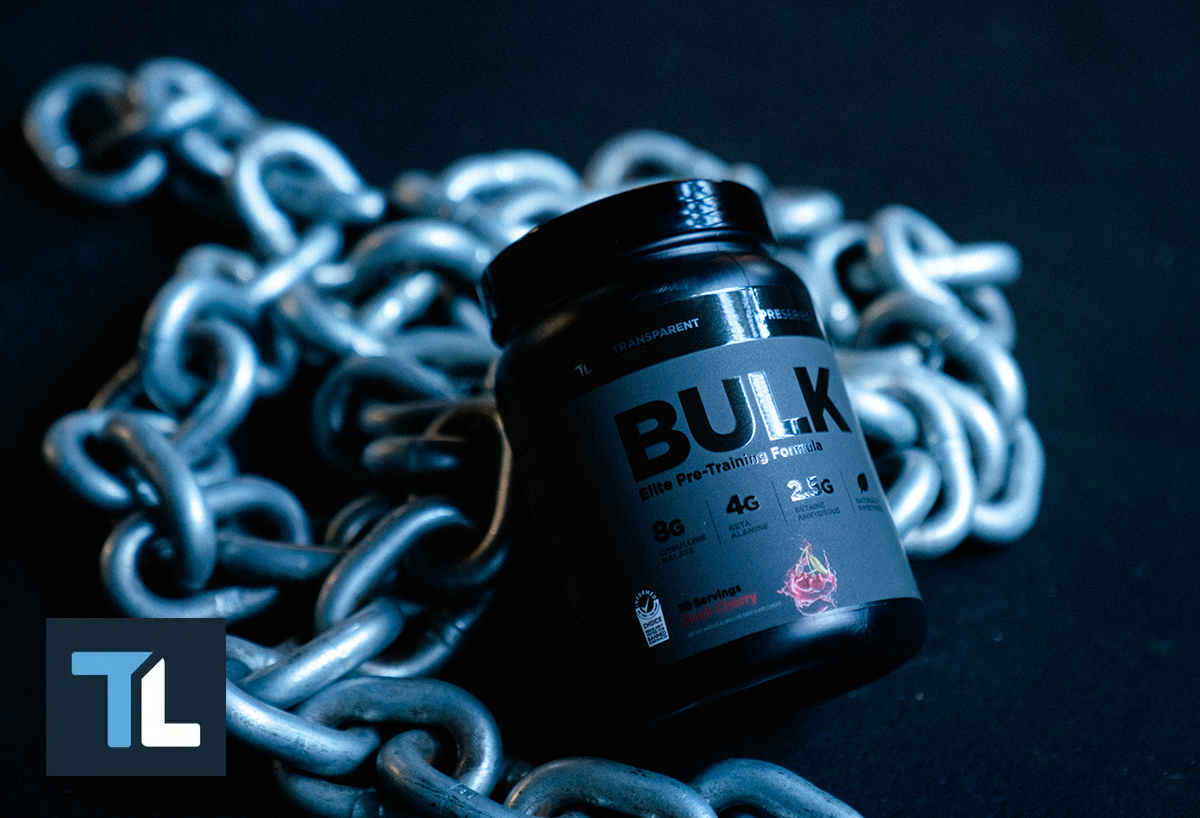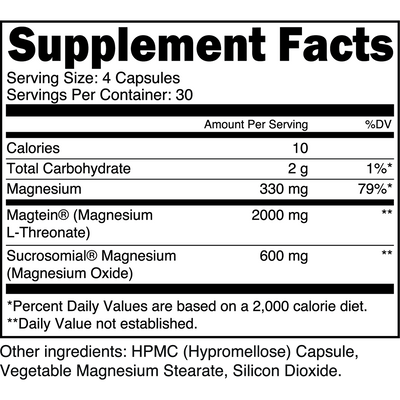Pre-Workout Duration & Tips to Boost Effectiveness

Sometimes, a cup of coffee just doesn’t cut it. When you’re chasing a new PR, tackling a 5K, or simply trying to summon the energy to make it to the gym, a well-formulated pre-workout can give you the boost you need.
Pre-workout supplements are typically available as flavored powders you mix with water, or in convenient ready-to-drink bottles or cans. Unlike coffee, which primarily delivers caffeine, pre-workouts often include a synergistic blend of ingredients like beta-alanine for endurance, L-citrulline for blood flow and pumps, and nootropics like L-tyrosine or theanine for focus.
These ingredients work together to enhance energy, strength, and mental clarity during your workouts—making them a go-to for anyone serious about performance.
Either way, pre-workout products are meant to be taken before your workout.
How long does pre-workout last? When taken in the recommended dosage based on body weight, pre-workout supplements typically remain effective for 3 to 5 hours. This duration is sufficient to power through an intense workout session.
Pre workout is often contain a combination of energizing ingredients that help sustain your focus, stamina, and mental and physical performance enough to crush a workout and support those serious muscle growth and gains.
However, timing is everything — taking your pre-workout too early before a workout might not give you the desired effect; likewise, drinking it too late in the day might mess with your sleep. Both are unfavorable effects, so you'll want to time your pre-workout properly and understand how long it lasts.
Here's everything you need to know about how long pre-workout lasts and how you can use pre-workout supplements to boost your athletic performance.
What's in Pre-Workout Supplements?
It's pretty rare to find single-ingredient pre-workout supplements. By design, pre-workouts contain a mix of different ingredients. Some common pre-workout ingredients include stimulants such as caffeine as well as vitamins, minerals, and amino acids.
Here's a snapshot of some of the research-backed ingredients in Transparent Lab's Bulk Pre-Workout:
Caffeine
Caffeine is a stimulant that increases the activity in your central nervous system (including the brain).
While it doesn't technically give you more energy, because it doesn't produce ATP, caffeine works by blocking certain compounds in your brain called adenosine that make you feel tired.
Still, caffeine has been consistently proven to improve endurance and exercise performance as well as help reduce the sensation of effort, according to a 2021 review in the Journal of the International Society of Sports Nutrition.
Beta-Alanine
This non-essential amino acid can help you work out longer because it delays muscular fatigue and helps boost your aerobic power, muscular endurance, and efficiency, per a 2008 study in the Journal of the International Society of Sports Nutrition.
Beta-alanine is also responsible for giving you that tingly sensation that many gym frequenters fondly associate with pre-workout.
Citrulline Malate
Another non-essential amino acid, citrulline has been shown to increase athletic performance, especially in high-intensity anaerobic exercises with short rest times, and help relieve muscle soreness, per a 2010 study in the Journal of Strength and Conditioning Research.
That means you can work out stronger, and hit the gym more frequently without feeling super sore.
L-citrulline converts to L-arginine and nitric oxide, which helps increase blood flow, potentially boosting athletic performance.
L-Theanine
This amino acid is especially effective when combined with caffeine, as it helps increase your mental focus and reduce the jitteriness associated with coffee. This combination gives you more sustained energy.
L-theanine has been shown to increase reaction time, attention, and memory, per a 2008 study in Nutritional Neuroscience.
Betaine Anhydrous
This compound is made naturally in the body, but you can also get it from certain foods and supplements.
Betaine can improve muscle endurance as well as the quality of reps performed, per a 2009 study in the Journal of the International Society of Sports Nutrition.
Taurine
This non-essential amino acid, when combined with branched-chain amino acids (BCAAs), can help reduce muscle soreness from high-intensity exercise, per a 2013 study in Advances in Experimental Medicine and Biology.
How Long Does Pre-Workout Last?
How long your pre-workout lasts ultimately depends on the ingredients in it. If your pre-workout supplement contains caffeine, you'll likely feel its effects for hours.
Caffeine kicks in quickly — that is, 30 to 60 minutes after taking it. Not only that, but it stays in your system for a while. Caffeine's half-life, or the amount of time it takes for half of the amount to break down in the body, is 3 to 5 hours, according to the American Academy of Sleep Medicine.
So if you took a pre-workout with 200 milligrams of caffeine, half of that amount (100 milligrams) will remain in your body about 3 to 5 hours after you've downed your drink.
Other ingredients usually have a shorter half-life. For example, beta-alanine has a half-life of about 25 minutes and can fully clear out in 3 hours; but, similarly to caffeine, it peaks around 30 to 40 minutes post-ingestion, per a 2015 report in Amino Acids.
So how long does pre-workout last? You can expect most pre-workout formulas to kick in within 30 minutes to an hour of taking it, and its full effects can last around 3 hours after.
The Benefits of Pre-Workout, and How You Know It's Wearing Off
Taking pre-workouts comes with numerous benefits, and it can give you the energy boost you need to build muscle mass. It's especially handy if you don't like to drink coffee.
Some common performance outcomes associated with taking pre-workout include:
-
Increased energy
-
Enhanced performance
-
Improved focus
-
Increased blood flow
-
Reduced fatigue
-
Faster recovery
You'll know your pre is wearing off when you don't feel as amped up anymore. Some tell-tale signs that most of the stimulants are clearing out of your system include:
-
Less energy
-
Fatigue or tiredness
-
Reduced focus or concentration
-
Less motivation
-
Reduced performance during exercise
-
Muscle fatigue or weakness
-
Increased perception of effort during workouts

Factors Influencing Pre-Workout Duration
Everyone's different, and the way pre-workout affects your gym buddy can be completely different from how it affects you.
Many factors come into play here, including your genes and metabolism, body composition, your tolerance to certain ingredients, and more.
Genetics
For example, people with certain genotypes (or genetic makeups) can be fast or slow caffeine metabolizers, per a 2010 Psychopharmacology study.
It all depends on how your body metabolizes caffeine. People who metabolize caffeine quickly may not feel the effects of the nervous system stimulant so much as slow metabolizers would.
Weight
What's more, your body weight also affects your tolerance and how long the pre-workout will last.
Studies show that your ratio of fat to muscle mass affects caffeine absorption and side effects, and that people with overweight or obesity might feel the effects of caffeine more than people with a lower body weight, per a 2023 Nutrients study.
Age
Age might also play a role: People ages 65 to 70 years old take about 33% longer to metabolize caffeine than younger coffee drinkers.
Maximizing the Effects of Pre-Workout
More isn't always better – and that goes for your pre-workout dosage, too. Always stick to the serving size listed on the supplement label. Trust us, there are better ways to make your pre-workout last that doesn't involve dry-scooping another round.
If you're trying to maximize the effects of your pre-workout to help improve athletic performance as you build muscle, consider the following:
Focus on Timing
Often, your pre-workout supplement label will tell you how long before a workout you should take it for peak effectiveness. Usually, that's around 30-60 minutes before exercise.
Stay Hydrated
Drink plenty of water before and after taking pre-workout supplements to prevent dehydration. Being even slightly dehydrated can make you feel weak and tired, two symptoms you're trying to avoid before hitting the gym.
Take Breaks
Taking breaks from your pre-workout supplements can help prevent building tolerance. Research shows that the ergogenic effects of caffeine wear off the longer you take it, suggesting a progressive tolerance, according to a 2019 study in PLOS One.
That means you should also be mindful of your overall caffeine intake from other foods and drinks, such as coffee, tea, and chocolate, to avoid overstimulation and desensitization because consuming caffeine on the regular can make you more tolerant to its effects over time.
Try switching between stimulant and non-stim pre-workouts from time to time.
Get Good Sleep
No amount of pre-workout can replace a good night's rest. Getting quality sleep can help boost your energy levels and workout performance.
The CDC recommends at least 7 hours of sleep each night.
Safety Considerations
Remember, caffeine is technically a drug — and taking too much caffeine or pre-workout can lead to unpleasant side effects that may even leave you cutting your workout short. And that's exactly the opposite of what you're trying to achieve by taking your pre-workout.
Heart Issues
Taking too much pre-workout can raise your blood pressure and heart rate. Stimulants such as caffeine, which is found in many pre-workout supplements, can also cause blood vessels to constrict, resulting in reduced blood flow and cause high blood pressure levels.
Taking Pre-Workout Supplements Before Bed
You also don't want to take pre-workout too close to your bedtime. Translation: Skip the pre-workout before an evening gym session.
Taking pre-workout with stimulants such as caffeine can mess with your circadian rhythm and make it nearly impossible to fall asleep.
Getting poor sleep can make double-dosing the pre-workout an extra-attractive idea at the moment, but that only creates a vicious cycle of poor sleep and relying on pre-workout. Remember, no amount of caffeine can replace a proper night's rest.
Medication Disclosure
And last but not least, if you're on medications, always speak to your doctor before starting a new supplement — pre-workout formulas included. Some ingredients in pre-workout supplements may interact with certain medications or worsen underlying health conditions, so you'll want to get the green light from your doctor before trying a new pre-workout.

The Bottom Line
How long pre-workout lasts depends on the ingredients in it and their half-lives, but it usually takes about 30 minutes to kick in and lasts for around 3 hours.
At the end of the day, pre-workouts are still supplements. And supplements should complement, not replace, a well-rounded fitness routine.
When your nutrition and sleep are on point, pre-workout supplements can help give you that extra energy boost to crush a workout and stack those gains. Just make sure to follow the dosing instructions of your pre-workout to a T and avoid taking more than the recommended dosage listed on the label.
And if you're new to pre-workout, start slow. You may want to begin by taking half the recommended serving size and monitoring how it affects you.
Because people metabolize stimulants and other ingredients in pre-workout differently, you'll want to start slowly to gauge how your supplement affects not only your workout performance but your mood, too. Side effects like jitteriness, anxiety, and chest pressure may mean you took too much.









